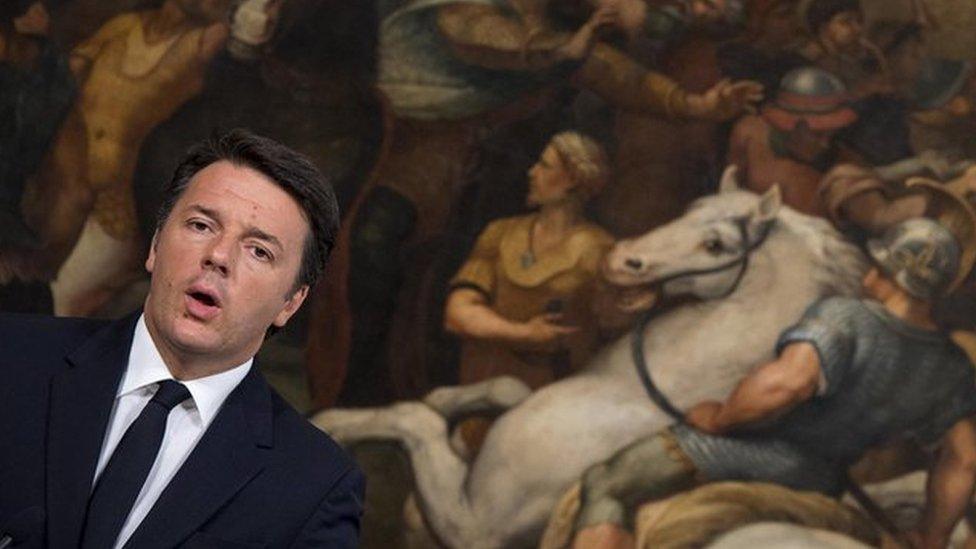Cold and frosty EU morning for Theresa May
- Published
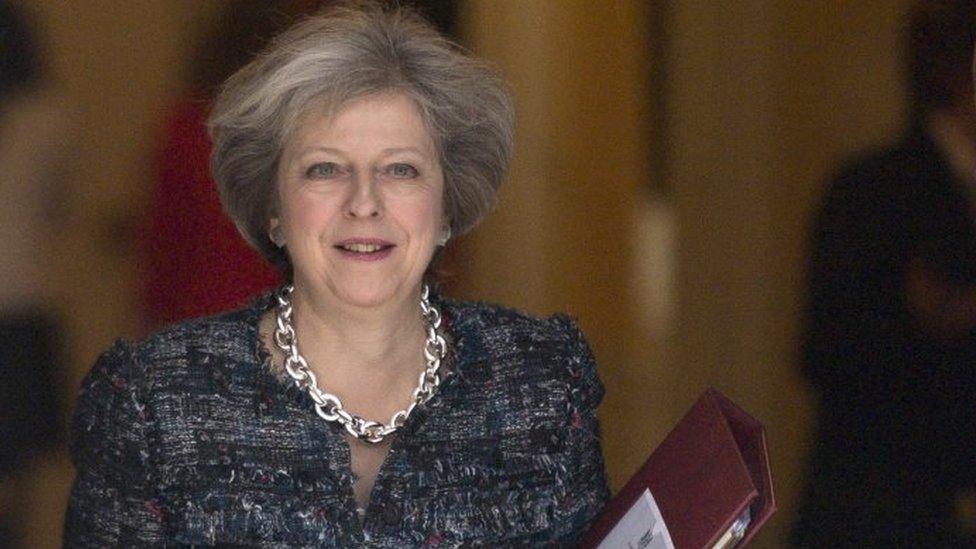
British Prime Minister Theresa May has been invited to give a "Brexit update" to EU leaders
Proudly straightening her skirt, jauntily knotting his tie - a new premier usually feels some excitement about attending their first summit of European Union leaders.
Not so Theresa May.
I imagine her slipping on her patterned pumps with some dread this morning as she dashes off to Brussels.
There is a plethora of English expressions for what she has to do today: put a brave face on things; maintain a stiff upper lip; make the best of a bad job.
Her welcome to the EU leaders' table for the first time as British prime minister will be polite but cold.
Brussels has been at pains to point out there will be no Brexit debate at this or any other summit until Downing Street launches formal Brexit negotiations, which it says it will do by the end of March.
Four-letter word
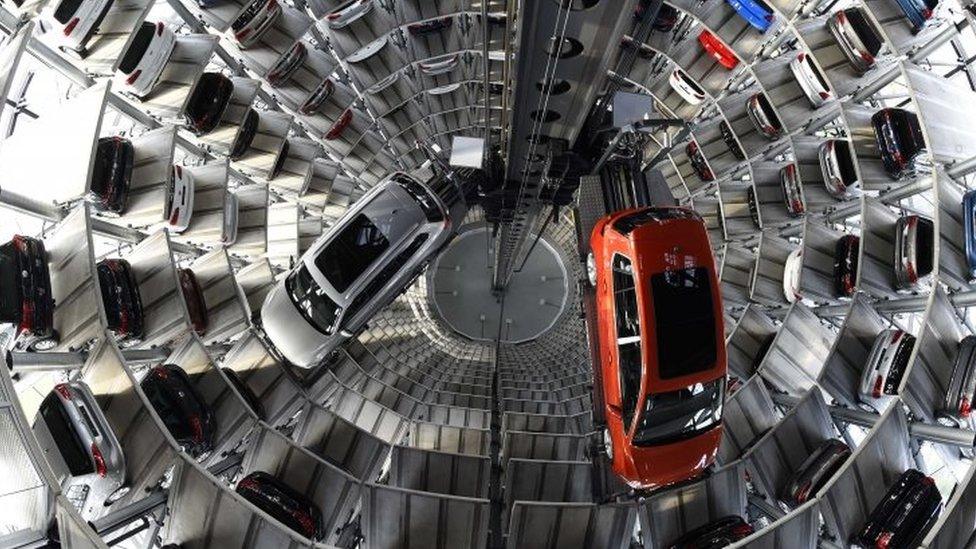
The UK is Germany's third largest car export market
Mrs May has been invited to give a "Brexit update" on Thursday night over dinner with other EU leaders but an open discussion has been ruled out.
But Brexit will remain the red, white and blue elephant in the room during all the official discussions tabled at this summit, such as Russia, Syria and migration.
And as I travel through Europe now, I notice a distinct hardening of attitudes - even amongst Britain's closest EU allies, like Germany.
Leading Brexiteers boast confidently that Europe's most powerful nation is bound to push hard for a good EU deal for the UK.
They cite German self-interest and a four-letter word: cars.
The UK is Germany's third largest export market, and one in five German cars is sold in Britain.
But, says Sir Peter Torry, the UK's former ambassador in Berlin, Britain misunderstands the relationship its European partners have with the EU.
It's very different to the UK's transactional attitude.
"Europe was a salvation for Germany after the horrors of World War Two," Sir Peter said.
"If push comes to shove and it's EU integrity or selling more cars; if the choice is between the UK and the EU, Germany will plump for the EU."
Political football
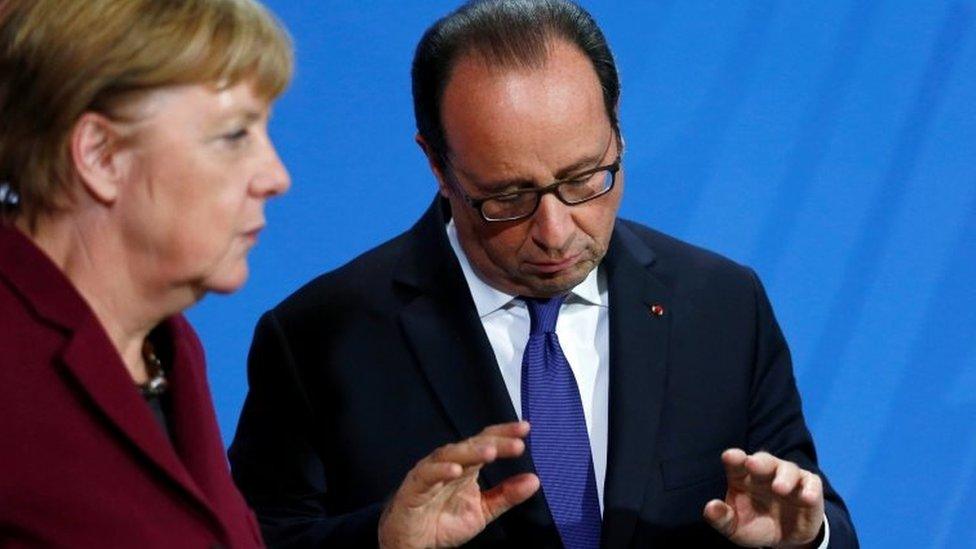
Both German Chancellor Angela Merkel (left) and French President Francois Hollande face elections in 2017
Once the best EU buddy of David Cameron, the Netherlands' Prime Minister, Mark Rutte, has also begun to turn his back on London.
He fears his Eurosceptic political rivals will only benefit if post-Brexit UK wins generous concessions.
The leaders of France and Germany face a similar dilemma.
All three countries hold general elections next year, with Brexit becoming something of a political football.
For now, the assumption in Brussels, based on Theresa May's speeches, is that she's moving towards a so-called hard Brexit.
The EU intention is to drive a hard bargain.
One high level EU source was only half-joking when he told me that after the migration, the euro and the terror and security crises, he had not seen EU leaders this united in a long time as they close ranks over Brexit.
True, it seems, for now...
'Enough!'
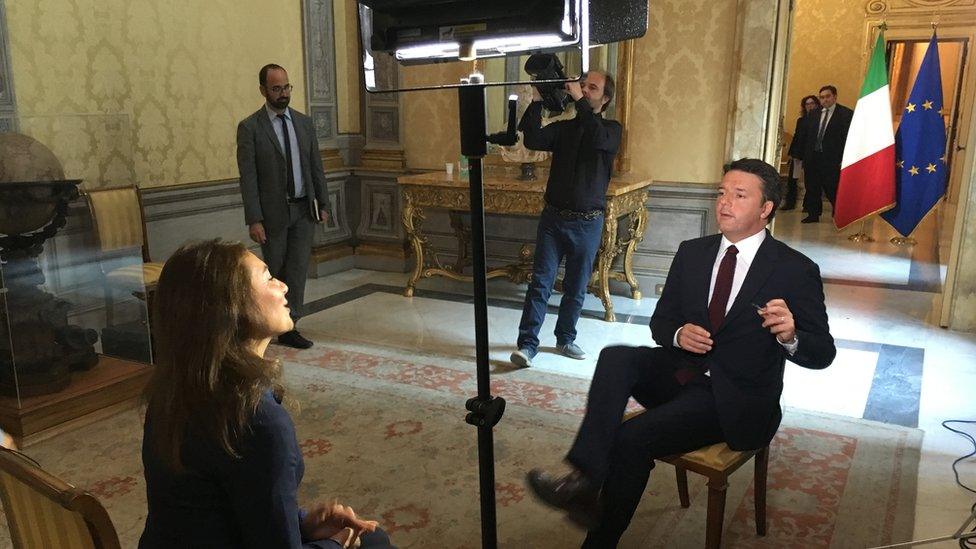
Italian Prime Minister Matteo Renzi (right) talks to BBC's Katya Adler
...except possibly the Italians.
Italy is incandescent that the European Commission isn't taking firmer action to help with the thousands of mainly economic migrants still landing on Italian shores.
An EU source described Italy as being convinced that Britain was "the root cause" of paralysis, with the commission so anxious to maintain the united front amongst EU countries post-Brexit that it was shying away from making any tough decisions.
Just the other week, a clearly frustrated Prime Minister Matteo Renzi told me: "Enough! We in Europe have been focusing on Brexit for more than two years now.
"It holds up key EU business. Let's get Brexit over and move on."
I went to a political cabaret in Berlin this week where Brexit, Germany's struggle with it and the EU's precarious future were all the subject of merciless satire.
At one point, the cast staged a mock Eurovision song contest with each country mourning Britain's impending EU departure.
"Ne me quitte pas" (Don't leave me) being the French contribution, of course.
However, the grand finale included all the supposed Eurovision singers telling Britain to get stuffed (in rather cruder language).
Today a similar show has come to Brussels - promising a daring debut by Theresa May and increasingly hostile performances by the Dutch, the French, the Germans and their supporting EU cast.
- Published1 June 2015
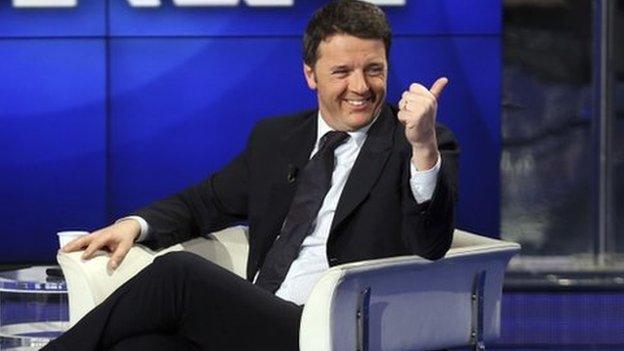
- Published9 September 2016
- Published9 July 2016
